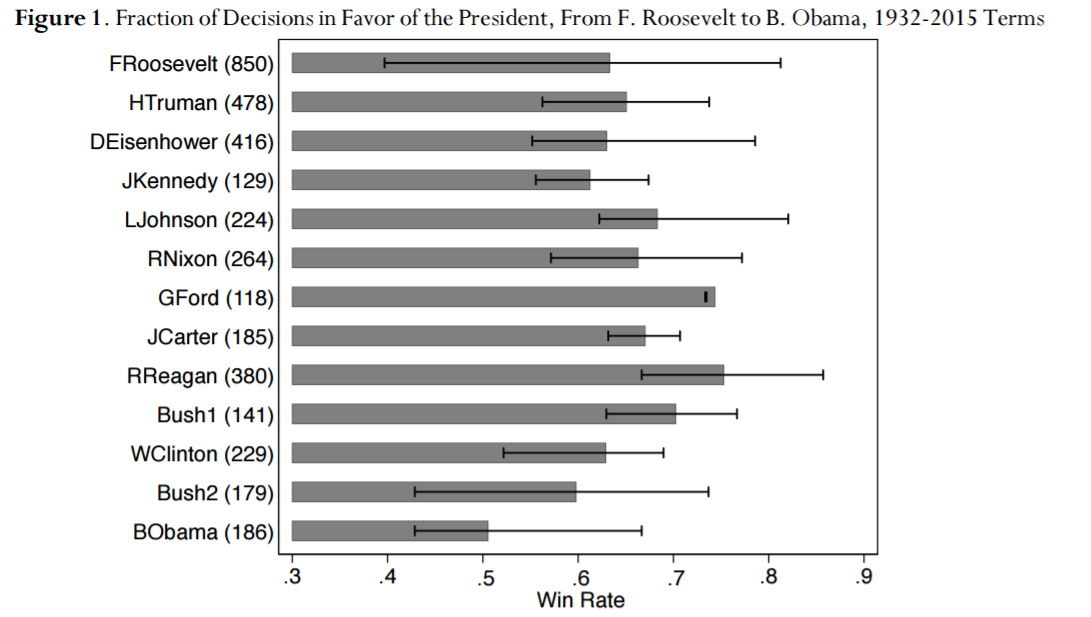Andrew Sullivan thinks so. Some members of Congress also think so or pretend they do. I do not.
How can we tell? Start with Trump’s background. While we do not really know whether he is a good businessman or a bad one, we do know that he has run a business for many decades without destroying it and very likely has made a great deal of money. Mentally unstable people do not run businesses. Trump won the presidential election after disregarding the advice of many experienced, intelligent, rational people. Mentally unstable people do not win presidential elections. (In the old days, they occasionally inherited a kingdom, but being born to a king requires no specific mental capacity.)
Sullivan thinks Trump is mentally unstable because Trump constantly tells easily verifiable lies. While Trump’s mendaciousness is truly a natural wonder, a Mount Everest or Grand Canyon of human psychology, it is not hard to understand. Many, many people exaggerate their accomplishments, blame their failures on others, and misrepresent reality in order to make themselves look better. This behavior is ubiquitous—sometimes intentional, more often subconscious. In ordinary life, we tolerate it, mutely or not, hoping that we are not as bad as the person whose lies we are listening to. Trump’s negotiating partners have no doubt patiently sat through the avalanche of lies, then tell their own before insisting that the offer be in writing.
What makes Trump’s behavior seem pathological is that he is the president rather than your neighbor or colleague or negotiating partner. He speaks to audiences of millions rather than to audiences of one or two, and is immediately checked by the press. No president or leader of a developed country has ever acted like him. Most politicians speak from mental (or real) transcripts, which have been carefully vetted so that they offend no one and reveal nothing. Normal presidents lie but only when they expect to be believed because the facts are hidden from the public. Consider Bush (Iraq), Clinton (sex), Reagan (Iran-Contra), Nixon (Watergate + nearly everything), LBJ (Vietnam + nearly everything), Eisenhower (U-2). That’s normal politics.
But if Trump’s behavior is politically pathological, it is psychologically natural. If biographic accounts are to be believed, he has spent his entire life telling lies and profiting from them. The lies helped his business, his love life, and his endless efforts at self-promoting. They helped him win the election. And not just the lies, but the incessant bloviating about things he knows nothing of. Having won the campaign, he has gained immense self-confidence in his political instincts. Three weeks in, he sees no reason (yet) to depart from his modus operandi of chattering, lying, bloviating, and tweeting, in order to provoke people, gain attention, and control the agenda. He enjoys it all too much, maybe he can’t really help it, but he has not been convinced that his lies harm him. He makes up facts to make himself look good because he is like everyone else except more so. Unlike everyone else, he is publicly contradicted by the press. When this happens, he doubles down rather than take the risk of losing face. Trump believes that the press is controlled by his enemies; he cannot afford to make concessions to it.
Now that he is president, Trump cannot continue this type of behavior indefinitely. Either he will lose the confidence of the public, or he will submit to cabinet government, deferring to his advisers and subjecting himself to the discipline of a communications director. Or so I predict.
Some commentators believe that far from being mentally unstable, Trump is a super-canny manipulator of public opinion, a type of Hitler or even the sort of mythical figure you find in dystopian novels like 1984. These commentators believe that Trump uses his lies in order to humiliate his subordinates who must repeat them—this is supposed to bind them to him. But it actually destroys their credibility and renders them useless as instruments of power.
Or the commentators think the lies will give Trump extraordinary power by making him unpredictable, without stopping to wonder how Trump will accomplish anything if no one believes him or his promises. Or they believe the lies will make it impossible for the public to distinguish truth from falsehood, causing people to lapse into hopeless submission while Trump consolidates power. This is all a paranoid fantasy.
Since becoming president, Trump has damaged himself with his lies. By attacking all journalists, Trump has provoked even the conservative press that would otherwise be his ally. By lying in such blatant ways, he has also forced the conservative press to contradict him again and again. This is not a well-thought out strategy, or a strategy at all. Trump’s bluster is a defense mechanism, not a strategy. He’s not a super-genius, and he’s not crazy; he’s just in over his head.
